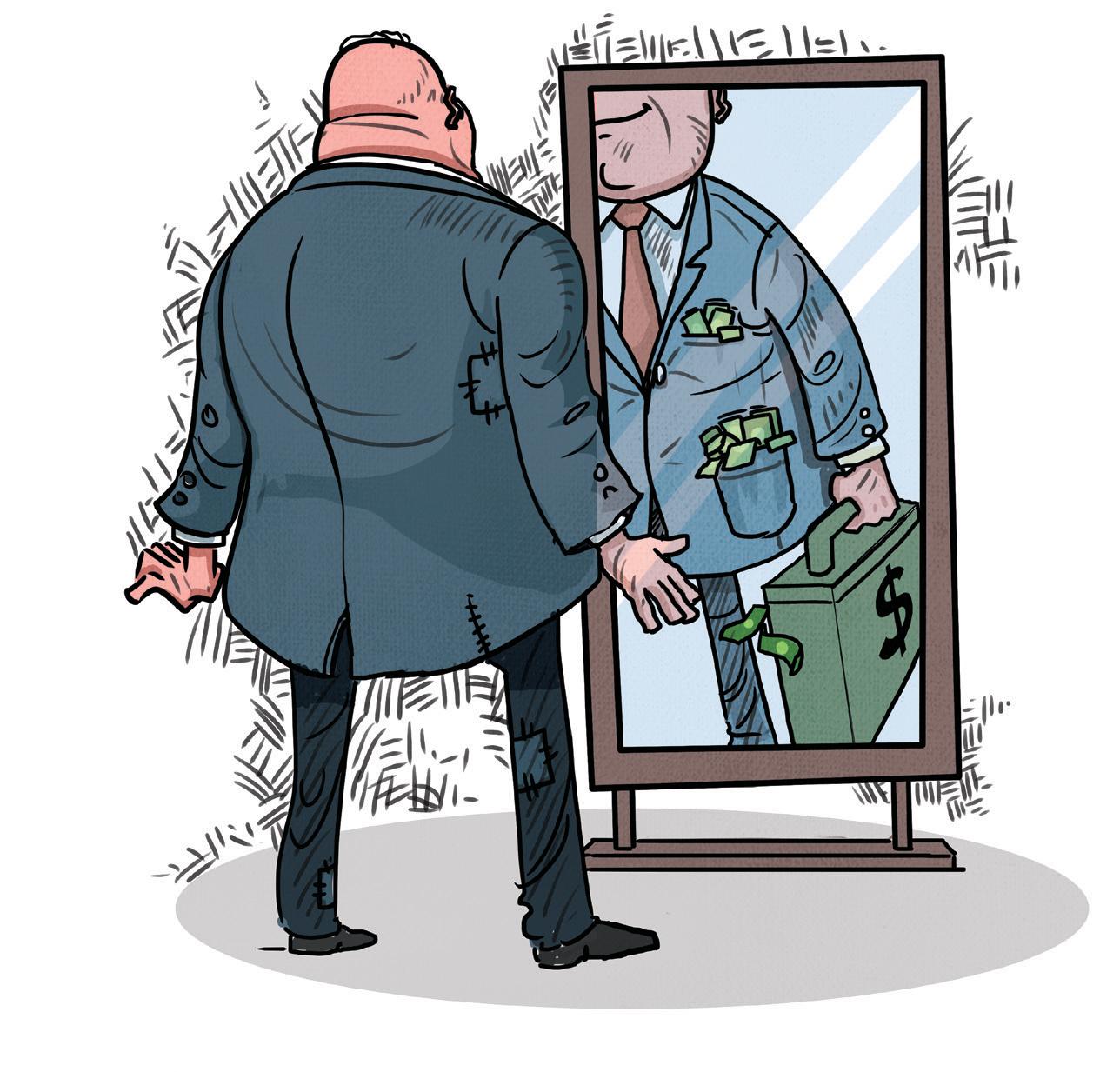Try GOLD - Free
Post-pandemic blues of predatory pharma
Down To Earth
|November 16, 2023
Huge stockpiles of COVID-19 vaccines and treatments, along with a steep drop in revenues, tell a sorry tale of Big Pharma's greed
-

WHAT GOES up must come down.Everyone understands that. Businesses know that only too well, because most industries face market cycles. Not the pharmaceutical industry, though, which is insulated from these highs and lows because demand for medicines never goes down, whether the economy shrinks or expands. Now, as the panic and scramble for vaccines becomes a dark memory, Big Pharma is learning how unsustainable its pandemic high of soaring profits was. With projected offtake tapering off sharply since early 2022, especially in the US, a clutch of drug giants is seeing revenues drop by over 40 per cent. These figures reflect poorly on their role during the coVID-19 pandemic, when profits mattered much, much more than patients.
The pandemic years were marked by one of the biggest tussles between rich and developing countries at the World Trade Organization (WTO) over intellectual property rights (IPRS). Why IPRS? Because IPRS, which include patents and trade secrets, had a direct bearing on the ability of the world to meet the demand for desperately needed vaccines and therapeutics to fight COVID-19 through a host of generic companies if they were allowed to override patents during the pandemic. This column covered the issue extensively and predicted from the start that it was a lost cause. The US and the EU, where the vaccines to fight COVID-19 were developed, would not allow even a temporary waiver because of the powerful lobby of Big Pharma (see "Compromise' on TRIPS waiver is a sellout', Down To Earth, 1-15 April, 2022).
This story is from the November 16, 2023 edition of Down To Earth.
Subscribe to Magzter GOLD to access thousands of curated premium stories, and 10,000+ magazines and newspapers.
Already a subscriber? Sign In
MORE STORIES FROM Down To Earth
Down To Earth
Popular distrust
THE WORLD seems to be going through a period of stasis despite facing an unfathomable polycrisis.
2 mins
February 01, 2026

Down To Earth
CONSERVE OR PERISH
Periyar Tiger Reserve has rewritten Indian conservation by turning poachers into protectors and conflict into coexistence
5 mins
February 01, 2026

Down To Earth
'Rivers need to run free'
From Tibet to West Bengal, the Brahmaputra is the pulse of communities and ecosystems along its course. But what are the risks the river faces through human interventions, particularly dams, discusses journalist, author and filmmaker SANJOY HAZARIKA in his new book, River Traveller.
4 mins
February 01, 2026

Down To Earth
India is facing up to its innovation lag
There are signs now that India is acknowledging the superior strides made by China in a frontier technology like Al
4 mins
February 01, 2026

Down To Earth
Competing concerns
What are the repercussions of the EU-Mercosur pact that have made European farmers protest against the free trade agreement?
4 mins
February 01, 2026

Down To Earth
From fryer to flight
Sustainable fuel made from used cooking oil can play a pivotal role in helping India achieve its aviation emission reduction goals. Measures to collect this oil must be revamped
4 mins
February 01, 2026

Down To Earth
ACCESS OPEN
An amendment to India's nodal forest conservation law opens up forests across India to commercial exploitation by the paper industry
6 mins
February 01, 2026
Down To Earth
DRINK FROM TAP CAN BE A REALITY
As cities across India struggle to supply safe piped water, Odisha offers a success story
2 mins
February 01, 2026

Down To Earth
GREAT DRYING
The Earth is hotter than at any point in the past 100,000 years, with 2023-25 becoming the warmest three-year period on record and also breaching the 1.5°C threshold for the first time. One fallout is dwindling freshwater.
22 mins
February 01, 2026

Down To Earth
Green redemption
Restoration of grasslands of Kerala's Pampadum Shola National Park, once dominated by invasive Australian wattles, see a return of streams and native species
1 mins
February 01, 2026
Translate
Change font size
